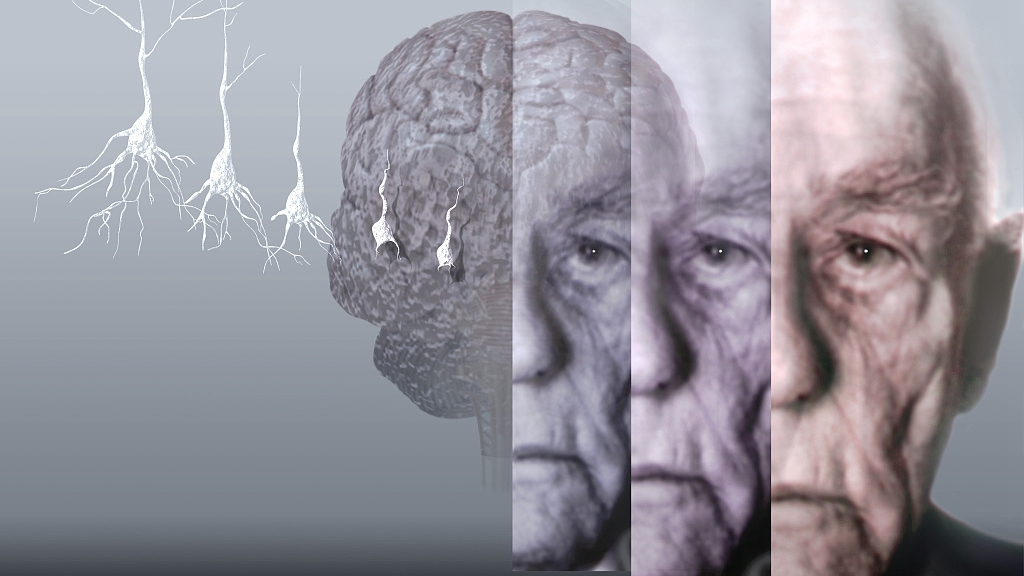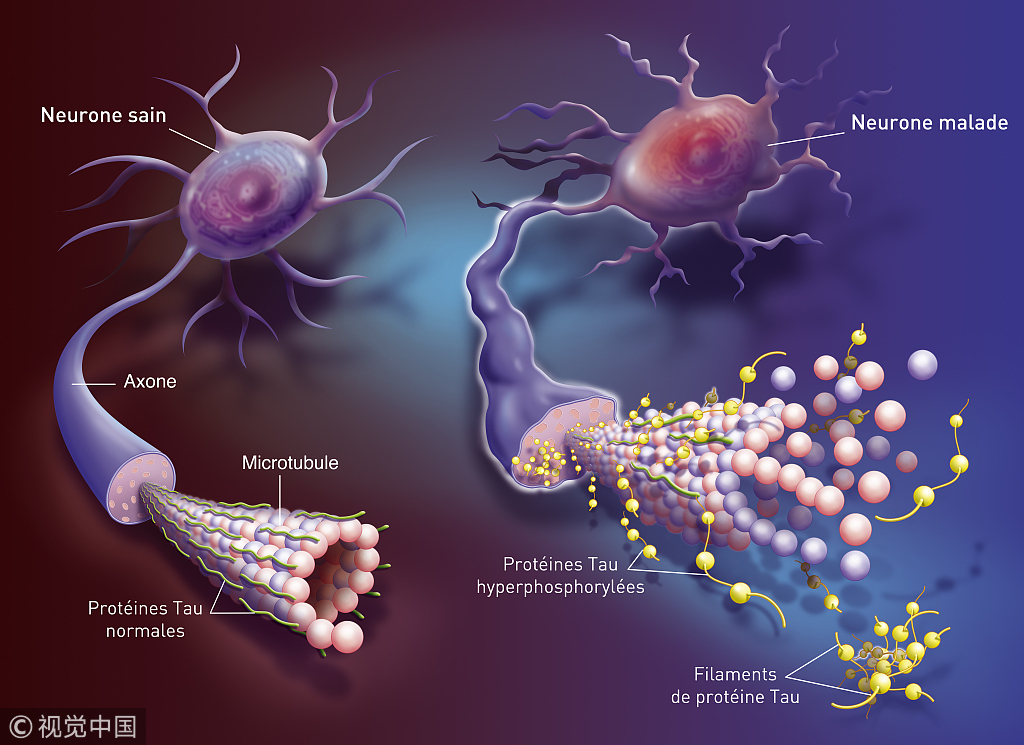
Europe
14:51, 23-Jan-2019
A blood test could predict Alzheimer's 16 Years Earlier
CGTN

A simple blood test could predict if a patient will develop Alzheimer's disease up to 16 years before symptoms begin, like memory loss appear, according to a new study carried out by researchers from Washington University School of Medicine in St. Louis and the German Center for Neurodegenerative Diseases in Germany.
There is still no effective treatment to stop or slow the progression of Alzheimer's, but the results from the study could help doctors pinpoint who might get the disease, which is still a game changer.

Alzheimer's Disease, Drawing. / VCG Photo
Alzheimer's Disease, Drawing. / VCG Photo
The new blood test will be "very important for clinical studies." said Mathias Jucker, the lead researcher, professor of cell biology of neurological diseases at the German Center for Neurodegenerative Diseases. He hopes the test will allow researchers to monitor the effectiveness of new treatments before people begin experiencing the symptoms, by measuring how levels of protein is affected.
His team measured the rate of change in neurofilament light chain (NfL), which is a marker in the blood which gives an indication of nerve cell loss in the brain, using a blood test in 405 individuals from across the world enrolled in the Dominantly Inherited Alzheimer's Network, an international research effort focused on dominantly inherited Alzheimer's disease.

Male Alzheimer's patient on bed, reminders on dresser drawers. /VCG Photo
Male Alzheimer's patient on bed, reminders on dresser drawers. /VCG Photo
Researchers believe any rise in levels of neurofilament could be an early sign of the disease, according to the study published Monday in the journal Nature Medicine
"The more neurofilament you have in the blood, the more brain damage you have," said Jucker.
There is currently no test doctors can use to conclusively determine whether someone will get Alzheimer's disease and there are a lot of unknowns about its cause.
"Alzheimer's disease starts at least a decade, maybe even 20 years, before we have any symptoms," said Jucker.
Many Alzheimer's researchers share this view, a cure may only work if it gets to the brain when the damage is just beginning, rather than after most of the cells and neurons have been damaged.

SITEMAP
Copyright © 2018 CGTN. Beijing ICP prepared NO.16065310-3
Copyright © 2018 CGTN. Beijing ICP prepared NO.16065310-3